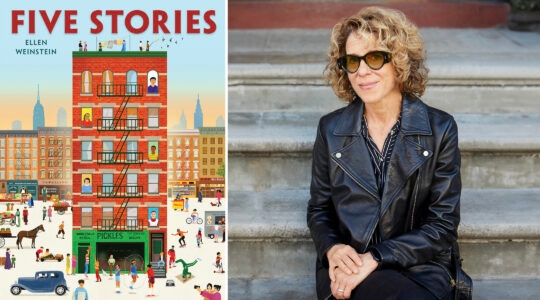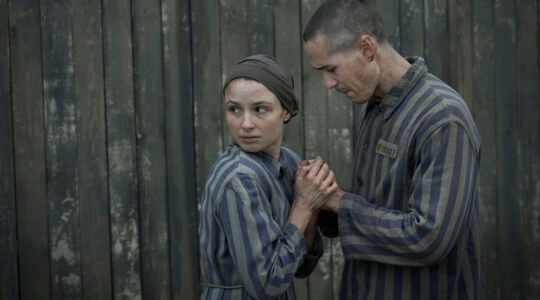Jewish activists were busy this week passing around an emotional blog post by Rabbi David J.B. Krishef, about his 15-year-old son, Solomon, who is blind. The teen was about to start the second half of eight weeks in Camp Ramah in Canada’s second oldest age group.
On a recent visit to the camp, however, the Krishefs were told by the first-year camp director that Solomon – in his fifth year at the camp — was being sent home. The reason given: “The camp is not able to accommodate Solomon’s needs for the full 8-week session,” according to the rabbi.
Camp director Ron Polster did not return JTA’s call on Friday.
“He didn’t know Solomon and we didn’t know him,” wrote Rabbi Krishef, religious leader of Congregation Ahavas Israel in Grand Rapids, Mich. “Nevertheless, we assumed that the camp’s prior commitment to accessibility and inclusion would be maintained. We were wrong.”
The rabbi concluded his first blog post with this zinger: [[READMORE]]
“Sitting in the dining hall with Solomon eating breakfast, I watched the campers sing and dance to a contemporary version of a teaching of Rabbi Akiva: `Love your neighbor as yourself – This is the fundamental principal of Torah.’ If I didn’t laugh, I would have started crying again. The camp can sing and dance all they want about loving one’s neighbor, but until and unless they back up the words with action, Camp Ramah in Canada will be a place that Rabbi Akiva would be ashamed to be associated with.”
But then Solomon’s 12-year-old daughter Sarah started a petition drive at the camp to support her brother. She netted 240 signatures. Some staff asked the director if they could help Solomon, enabling him to stay. The director agreed.
So in a second blog post, Rabbi Krishef praised Poster for having “a complete change of heart regarding how he handled the matter. He called and expressed a sincere apology, to Solomon, to me, and to my wife. He took a second look at how staff could be assigned for the second month. He assigned one more person to be Sol’s advocate, and at my request, assigned a new parent liaison” to be the teen’s advisor/social worker.
He added: “I want you to know that I still believe in the Camp Ramah experience, and I think I can rebuild my love for Camp Ramah in Canada. This unfortunate episode appears to be the result of a chaotic transition to new leadership… who blundered quite badly. Ron, I want to thank you for acknowledging your mistakes. We are all entitled to make mistakes, as long as we learn from them and make appropriate apologies to those we harm along the way.”
Nonetheless, Solomon decided to go home.
“I wish Sol would have chosen to stay, but given what he’s been through, I understand why he has made the decision to come home,” Rabbi Krishef wrote.
Reached by telephone Friday afternoon at his synagogue, Rabbi Krishef said he did not want to speak specifically about Ramah.
“Let’s talk about Jewish institutions or institutions or general,” he said. “Sometimes we build programs for the special needs kids and those kids tend to be well-served by the programs. And anybody who is not in that category is in the regular category. The problem is so many kids do not fit into the regular category, like my son, but not the special needs program.”
He recalled a talk he had with someone about deaf individuals.
“I can buy a Braille siddur and it can sit on the shelf and gather dust and cost $150 and 10 years from now someone can come in and use it and I’ll feel good,” he said. “An interpreter costs more money, but on the other hand, why would someone who is deaf come into my synagogue? Not all of these questions have easy answers.”





